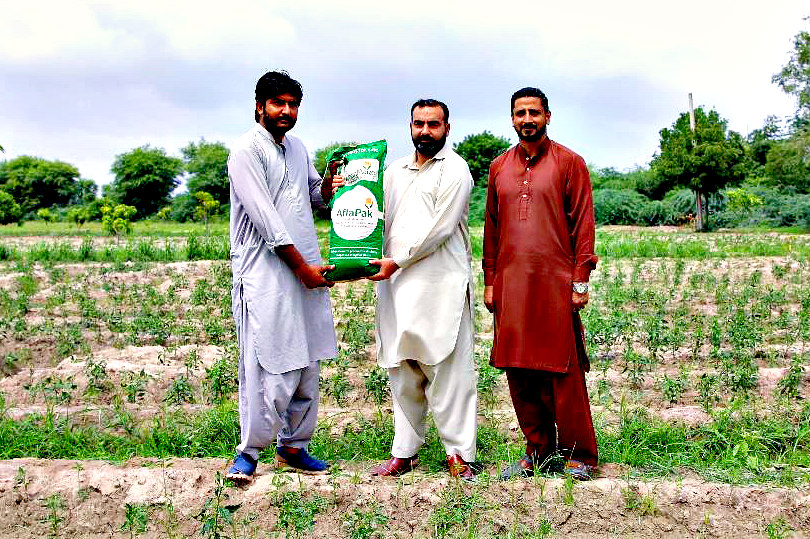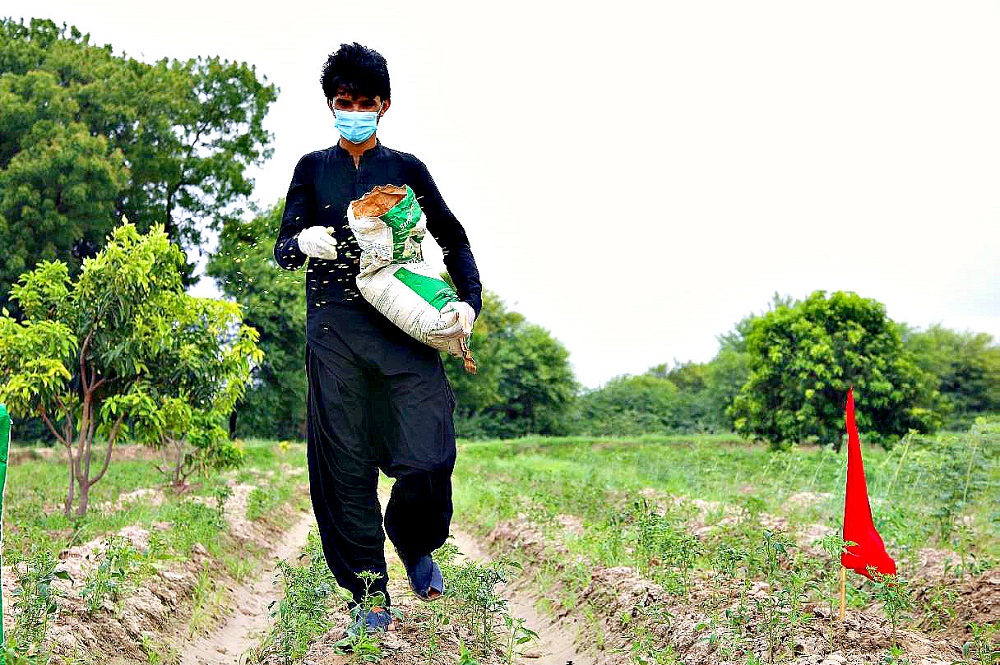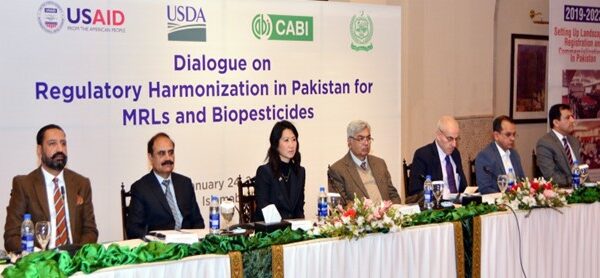
CABI in Pakistan is leading a project to help provide a biological control solution for combatting aflatoxin issues prevailing in red chillies grown in Sindh, Pakistan.
The work is being conducted in collaboration with the Pakistan Agricultural Research Council (PARC) with the support of United States Agency for International Development (USAID) and United States Department of Agriculture-Foreign Agricultural Service (USDA-FAS).
Pakistan is the world’s fourth-largest producer of chillies. Accounting for around 4-5 percent of total global chilli production, the country ranks sixth among red chilli exporting countries and accounts for 7.2 percent of global exports.
In Pakistan, 85% of chilli is produced in the Sindh province (GOP, 2019) – the Dundicut red chillies of Kunri are world-famous. However, over a decade, the export of chillies from Pakistan declined from 3.58 thousand tons to 3.27 thousand tons (GOP, 2019) due to non-compliance with international standards.
Strict international standards
In order to ensure quality food for consumers, value chain personnel must meet international food code standards. Aflatoxin and MRL concentrations found in agri-based produce must be quantifiably below the permissible limits set by international standards. A sustainable approach to handle such issues without deteriorating the quality of produce is, therefore, required.
Aflatoxins are generally considered to be a post-harvest problem, but the source/production of aflatoxin contamination are initiated at farm level during the cropping cycle.
A high prevalence of aflatoxin contamination is mainly common in the areas with hot and humid climate, similar to the those of Pakistan. Therefore, stringent measures are necessary to manage aflatoxin before the harvesting to ensure food safety.

The CABI project team, in collaboration with Crop Diseases Research Institute (CDRI) based at National Agricultural Research Centre (NARC), Islamabad are conducting field trials to determine the efficacy of a fungal biocontrol product to manage aflatoxins in red chilies.
Fungal biocontrol product
This product called AflaPakTM contains an active ingredient (non-toxigenic Aspergillus flavus isolate) which is indigenous to the Pakistani ecosystem and applied through broadcasting on their chilli crop prior to flowering stage.
Chilli crop is predominantly cultivated in Sindh Province. A chilli variety called ‘Laungi,’ which is also known as ‘Dandicut’ is native to the Kunri region in Sindh. It is famous worldwide due to its identifiable characteristics such as aroma, colour, and pungency.
Unfortunately, from past few decades, the cultivation of Laungi has lost the attention of farmers due to the prevalence of aflatoxins that are higher than permissible limits for international trade. This then results in the goods being rejected for export.
Hybrid varieties, however, are favoured by chilli growers due to relatively higher yields and resistance to bacterial diseases, but they are mainly deficient of the unique characteristics of Laungi. The project and its partners are working extensively for the revival of Laungi variety in Pakistan.
Promising results expected
It is anticipated that the biological control product will help to reduce aflatoxin contamination and provide promising results. Based on the availability red chilies meeting export requirements, there will be an increase in the demand for high-end international markets.
Exporters will also be ready to pay good prices which will, ultimately, improve the livelihood of the communities by increasing their profit margins.
Since the biological control of aflatoxin on red chillies is an emerging subject in Pakistan, mass level awareness is, therefore, required to school the farming communities.
In this regard, awareness sessions will be conducted in major chilli growing areas of Sindh. Farming communities will learn about the aflatoxins; its effects on human and animal health, trade barriers, good agriculture practices and the science behind the biological control technology.
Additional Information
Main photo: Biological control product field efficacy experimental trials on red chillies in Sindh (Credit: CABI).
Project page
Find out more about CABI work on ‘regulatory harmonization in Pakistan for maximum residue limits and biopesticides’ from the project page here.
Authors
Dr Babar E. Bajwa – Project Executive
Dr Sabyan Faris Honey – Project Manager
Contributors
Dr Hamzah Shahbaz Bhatti – Programme Officer
Dr Muzammil Farooq – Project Officer
Saqib Ali – Communication Officer
For more information, please contact:
Jessica Mudjitaba Fernandez – FAS
USDA
jessica.mudjitaba-fernandez@usda.gov
Related News & Blogs
Sindh farmer gains global recognition for sustainable cotton farming innovations
Photo credit: Evronas/Better Cotton. Location: Better Cotton Conference, Istanbul, Türkiye, 2024. Sindh farmer Fateh Muhammad Laghari has gained recognition for his commitment to sustainable cotton farming practices as part of the Better Cotton Member…
5 December 2024




